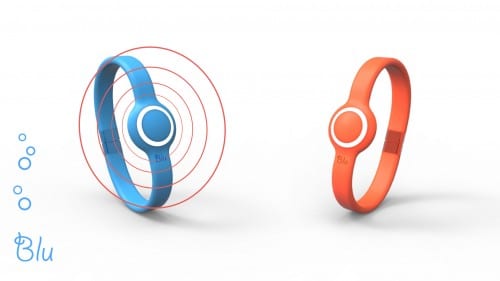The invention led the developers to win first place in the 3 Day Startup competition organized by the Brunitsa Center for Entrepreneurship at the Technion

"The water was clear. silence. And suddenly, 25 meters below sea level, there was a malfunction that prevented the air from flowing from the tank to the menstruum in my mouth. One moment and one of my favorite hobbies turned into a real nightmare. I tried to signal to my partner that I was in trouble, but he was far away and did not look in my direction. Luckily I was able to get out of it safely."
Omer Arad, a student in the Faculty of Computer Science at the Technion, was on a routine dive when he had one of the scariest experiences of his life. Omar not only took advantage of that breathtaking moment, but also translated it into an innovative idea that earned him and his teammates: Aviv Tahar and Oz Meir from the Technion, Manik Arora and Bernie Che from Johns Hopkins University, and Orit Dolev, a Shenkar graduate, in first place in the 3 Day StartUp (3DS) competition ) that took place at the Technion. The idea is a wearable distress bracelet, which allows the diver to call his partner even when there is no eye contact between them.
"Our mission was to make the world of diving safer," said Omar. "Every year, dozens of divers die in diving accidents and the solutions offered on the market today for transmitting a distress signal are not satisfactory, they are very expensive and adapted to professional divers. Therefore, we decided to develop "Blu" a wearable distress bracelet, sold as a pair, for the diver and his diving partner. In an emergency, all you have to do is press the button. The partner will immediately receive a signal of light and vibration, and will come to help."
The 3DS competition was founded four years ago at the Technion, as a 60-hour experiential workshop, which aims to allow students to experience the process of establishing a start-up company. In many cases, teams that met in the workshop and worked together on an idea, developed into start-up companies. Shai Haim, from the Bronitza Center for Entrepreneurship at the Technion, admits that "every time I have no idea what to expect, what the participants will bring to the table." Even when you're sure you've already seen everything, a student stands up and tells about a personal trauma, a student tells about an innovative idea that popped up in her mind following the discovery of juvenile diabetes in her brother. The result is that every year it is exciting anew."
He did not take the example of diabetes out of his sleeve. Avishag Seligman, a student at the Faculty of Architecture and Urban Planning, brought to the workshop an idea designed to help her diabetic brother monitor what he eats. Another participant in the workshop, who suffers from irritable bowel syndrome, commented that the idea was also relevant to him. This is how the idea was expanded to a more inclusive development, tracking food consumption for those with chronic diseases. Another team worked on an idea by Assaf Polkovsky, a student from the Faculty of Electrical Engineering, and developed wearable technology to prevent sprains among athletes.
This year, about 45 students from diverse faculties were chosen to participate in the workshop, who went through a strict selection process. During the workshop, various ideas were raised; 9 teams were formed ("start-ups"); The ventures worked with mentors from the industry - venture capitalists, entrepreneurs, marketing and business development people. The summit of the workshop was the presentation of the ideas to a panel of professional investors from leading venture capital funds, including Glilot Capital, AfterDox and Hammam Alon. According to Shai Haim, "it is a process that simulates the real startup world, including finding partners, working in groups, changes and improvements of the idea and the product, and receiving concrete feedback from investors. I am sure that this year we will also see ideas maturing into startups."
The two teams that won the first places in the 3DS competition won a direct entry ticket to the national entrepreneurship competition for students BizTEC.

3 תגובות
So many patent violations that it is very strange how they developed, there is a company in the US called diver alert for example.
Where can I buy such a bracelet?
important invention,
But the bracelet is intended for divers, not "divers",
Since a diver is a crew member on a submarine,
Those who enter the water with breathing equipment (or without)
It is called in Hebrew Tzu L!
It is appropriate that those who engage in the sport of diving
And who invents accessories that are intended for those involved in sports
The Japanese will learn the difference.